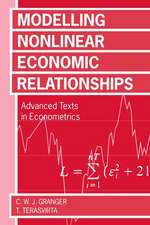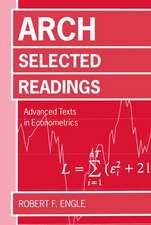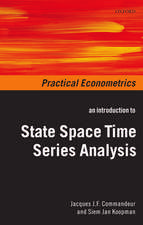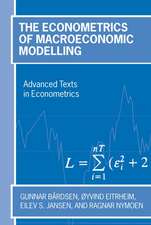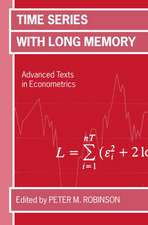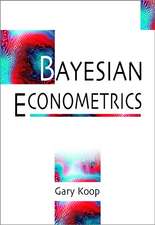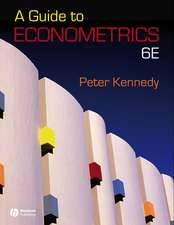Field Experiments in Economics
Autor G.w. Harrison, Jeffrey P. Carpenteren Limba Engleză Hardback – 22 mai 2005
The methodological issues revolve around the ability of field experimenters to ensure the same degree of control that lab experimenters claim. The applications cover issues such as risk and time preferences of the Danish population, savings decisions of the Canadian working poor, differences between the social preferences of American students and workers, the effect of educational vouchers on American school children, and differences in bargaining behavior across nations. This volume serves as an introduction to the issues and applications of this new area of experimental economics.
Preț: 998.07 lei
Preț vechi: 1296.19 lei
-23% Nou
Puncte Express: 1497
Preț estimativ în valută:
190.98€ • 208.10$ • 160.93£
190.98€ • 208.10$ • 160.93£
Carte tipărită la comandă
Livrare economică 24 aprilie-08 mai
Preluare comenzi: 021 569.72.76
Specificații
ISBN-13: 9780762311743
ISBN-10: 0762311746
Pagini: 384
Dimensiuni: 155 x 234 x 559 mm
Greutate: 0.69 kg
Editura: Emerald Publishing
ISBN-10: 0762311746
Pagini: 384
Dimensiuni: 155 x 234 x 559 mm
Greutate: 0.69 kg
Editura: Emerald Publishing
Public țintă
Experimental economists are leaving the reservation. They are recruiting subjects in the field rather than in the classroom, using field goods rather than induced valuations, and using field context rather than abstract terminology in instructions. This volume examines the methodology of field experiments, and offers a wide array of applications of field experiments.Cuprins
1. Field experiments in Economics: An introduction (J.Carpenter, G. Harrison, J.A. List). 2. Field experiments and control (G. Harrison). 3. Field experiments in Economics: Some methodological caveats (A. Ortmann). 4. Three themes on field experiments and economic development (J.C. Cardenas, J. Carpenter). 5. Eliciting risk and time preferences using field experiments: Some methodological issues (G. Harrison, M.I. Lau, E.E. Rutström, M.B. Sullivan). 6. Saving decisions of the working poor: Short and long-term horizons (C. Eckel, C. Johnson, C. Montmarquette). 7. Comparing students to workers: The effects of social framing on behavior in distribution games (J. Carpenter, S. Burks, E. Verhoogen). 8. The effect of educational vouchers on confidence: A field experiment to assess outcomes of a policy debate (E. Bettinger, R. Slonim). 9. Bargaining demographics and nationality: What can the experimental evidence show? (A. Botelho, G. Harrison, M.A. Hirsch, E.E. Rutström).





